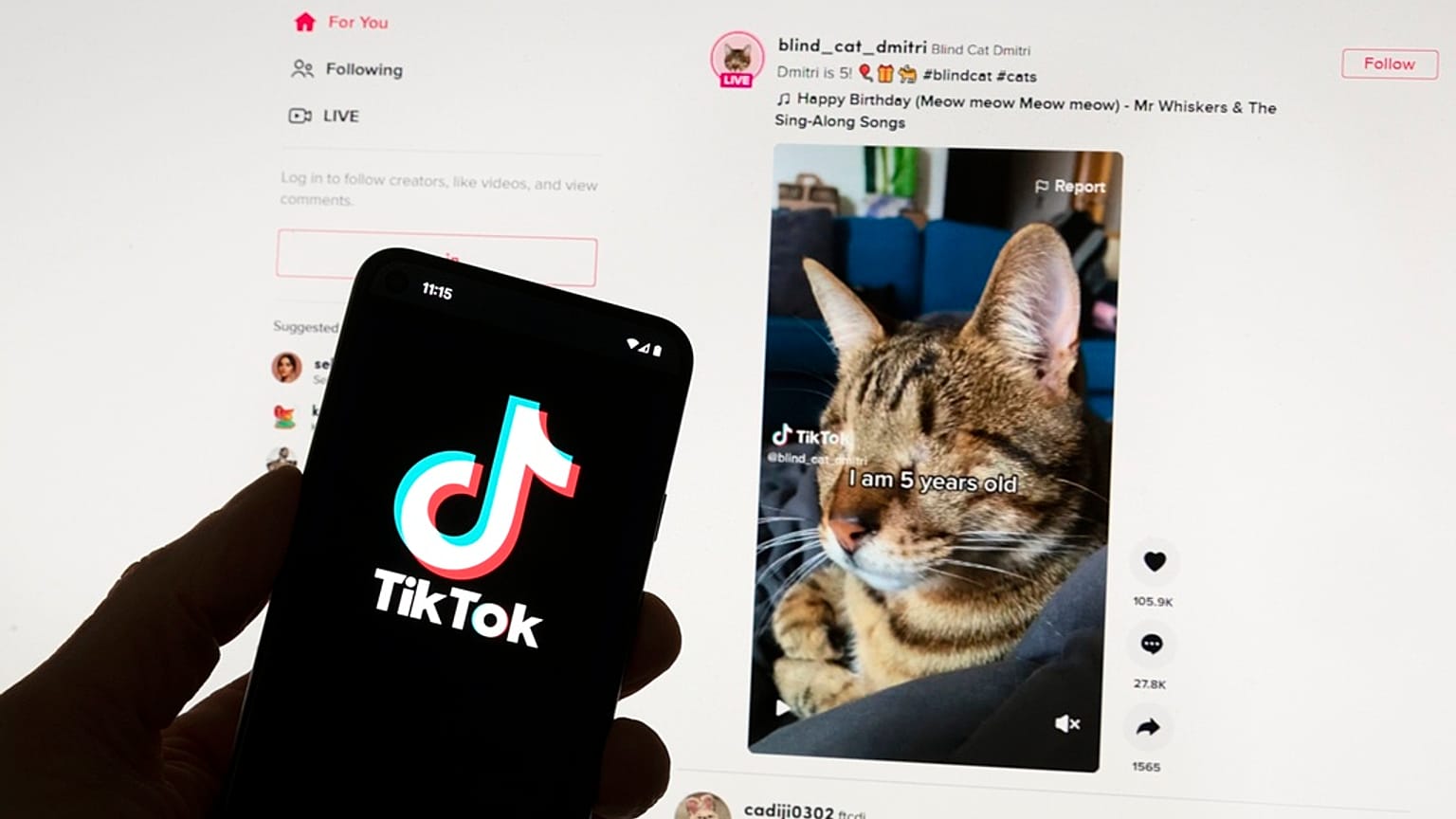What's prohibited offline should be prohibited online - social media platforms reigned in as the EU's biggest-ever shake-up of digital regulation kicks in
The European Union's groundbreaking new digital regulations that aim to clean up what people see online came into force on Friday.
 ADVERTISEMENT
ADVERTISEMENT
 ADVERTISEMENT
ADVERTISEMENT
The Digital Services Act (DSA) is part of a suite of tech-focused regulations crafted by the 27-nation bloc that is designed to keep users safe online and stop the spread of harmful content that's either illegal or violates a platform's terms of service, such as the promotion of genocide or anorexia.
It also looks to protect Europeans' fundamental rights like privacy and free speech.
So-called Very Large Online Platforms with more than 45 million monthly actives users, which include the likes of Google, Facebook, TikTok, Amazon, X and Youtube, could face billions in fines if they don't comply.
WHICH PLATFORMS ARE AFFECTED?
So far, 19. They include eight social media platforms: Facebook, TikTok, X, (formerly known as Twitter), YouTube, Instagram, LinkedIn, Pinterest and Snapchat.
Five of the biggest online marketplaces are also included: Amazon, Booking.com, China's Alibaba AliExpress and Germany's Zalando.
Mobile app stores Google Play and Apple's App Store are also affected, as are Google and Microsoft's search engines.
Google Maps and Wikipedia will also be subject to the new rules.
WHAT ABOUT OTHER ONLINE COMPANIES?
The EU’s list is based on numbers submitted by the platforms. Those with 45 million or more users, or 10% of the EU’s population, face the DSA’s highest level of regulation.
The list isn't definitive, and it's possible other platforms may be added later on.
Any business providing digital services to Europeans will eventually have to comply with the DSA. They will face fewer obligations than the biggest platforms, however, and have another six months before they must fall in line.
WHAT'S CHANGING?
Platforms have rolled out new ways for European users to flag illegal online content and dodgy products, which companies will be obligated to take down quickly and objectively.
The DSA “will have a significant impact on the experiences Europeans have when they open their phones or fire up their laptops,” Nick Clegg, Meta's president for global affairs, said in a blog post.
Asha Allen, from Centre for Democracy &Technology, Advocacy Director for Europe, Online Expression & Civic Space, told Euronews the DSA gives users more control:
"So specifically, users will now have more transparency on how content moderation decisions are made. Users will have more choice regarding the content that they engage in. So, for example, they can opt out of personalised advertising or they can determine that the content that they see is presented in a chronological order rather than based on determinations of the recommender systems that are based on vast amounts of data collection. There will be more mechanisms for complaints and mechanisms for redress for individual users."
Facebook and Instagram's existing tools to report content will be easier to access. Amazon opened a new channel for reporting suspect goods.
TikTok gave users an extra option for flagging videos, such as for hate speech and harassment, or frauds and scams, which will be reviewed by an additional team of experts, according to the app from Chinese parent company ByteDance.
Google is offering more “visibility" into content moderation decisions and different ways for users to contact the company. It didn't offer specifics. Under the DSA, Google and other platforms have to provide more information about why posts are taken down.
Facebook, Instagram, TikTok and Snapchat also are giving people the option to turn off automated systems that recommend videos and posts based on their profiles. Such systems have been blamed for leading social media users to increasingly view extreme posts.
The DSA also prohibits targeting vulnerable categories of people, including children, with ads. Platforms like Snapchat and TikTok will stop allowing teen users to be targeted by ads based on their online activities.
Google will provide more information about targeted ads shown to people in the EU and give researchers more access to data on how its products work.
IS THERE PUSHBACK?
Zalando, a German online fashion retailer, has filed a legal challenge over its inclusion on the DSA's list of the largest online platforms, arguing that it's being treated unfairly.
Nevertheless, Zalando is launching content flagging systems for its website even though there's little risk of illegal material showing up among its highly curated collection of clothes, bags and shoes.
The company has supported the DSA, said Aurelie Caulier, Zalando's head of public affairs for the EU.
“It will bring loads of positive changes” for consumers, she said. But “generally, Zalando doesn’t have systemic risk (that other platforms pose). So that’s why we don’t think we fit in that category."
Amazon has filed a similar case with a top EU court.
WHAT IF COMPANIES DON'T FOLLOW THE RULES?
Officials have warned tech companies that violations could bring fines worth up to 6% of their global revenue, which could amount to billions, or even a ban from the EU.
“The real test begins now,” said European Commissioner Thierry Breton, who oversees digital policy. He vowed to “thoroughly enforce the DSA and fully use our new powers to investigate and sanction platforms where warranted.”
But don't expect penalties to come right away for individual breaches, such as failing to take down a specific video promoting hate speech.
Instead, the DSA is more about whether tech companies have the right processes in place to reduce the harm that their algorithm-based recommendation systems can inflict on users. Essentially, they'll have to let the European Commission, the EU's executive arm and top digital enforcer, look under the hood to see how their algorithms work.
Big platforms have to identify and assess potential systemic risks and whether they're doing enough to reduce them. These assessments are due by the end of August and then they will be independently audited.
The audits are expected to be the main tool to verify compliance although the EU's plan has faced criticism for lacking details that leave it unclear how the process will work.
WHAT ABOUT THE REST OF THE WORLD?
Europe's changes could have a global impact. Wikipedia, deemed a Very Large Online Platform, is tweaking some policies and modifying its terms of use to provide more information on “problematic users and content.” Those alterations won’t be limited to Europe and "will be implemented globally," said the nonprofit Wikimedia Foundation, which hosts the community-powered encyclopedia.
“The rules and processes that govern Wikimedia projects worldwide, including any changes in response to the DSA, are as universal as possible," it said in a statement.
Snapchat said its new reporting and appeal process for flagging illegal content or accounts that break its rules will be rolled out first in the EU and then globally in the coming months.
It's going to be hard for tech companies to limit DSA-related changes, said Broughton Micova, a CERRE Research Fellow and a Lecturer in Communications Policy and Politics at the University of East Anglia (UEA). She added that digital ad networks aren’t isolated to Europe and that social media influencers can have global reach.
The regulations are “dealing with multichannel networks that operate globally. So there is going to be a ripple effect once you have kind of mitigations that get taken into place," she said.














